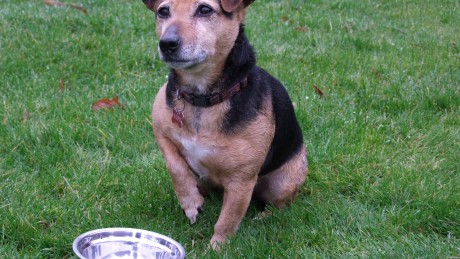
This week, I’ve written a “product review” with a difference – about an event, not a physical item. The event is a conference for pet vets, designed to keep vets and nurses up to date. Attending such events is an important part of being a veterinary professional: we are obligated to attend a certain number of hours of education to be allowed to keep our licence to practice.
The British Small Animal Veterinary Association Congress in Birmingham took place earlier this month and yet again, it was a record breaking event. The attendance of over 6000 vets, vet nurses, practice managers and students meant that the conference maintained its status as the world’s largest “companion animal only” veterinary conference. Yes, there are bigger veterinary conferences (e.g. the NAVC in Florida and the WVC in Nevada), but they are for farm and equine vets, as well as pet vets.
The scientific programme is the main raison d’etre for the Congress, with the aim of keeping vets and nurses up to date with the latest research in medical and surgical treatment of animals. With up to fourteen concurrent streams, there is an abundance of choice. As well as the standard lecture theatre format, there are interactive case presentations and small group discussions on a variety of focussed subjects.
Lectures follow specific areas of interest such as “Immune mediated disease”, “Feline Endocrinology”, “Behaviour”, “Dentistry” and “Cardiology”. There are also more innovative themes,with carefully chosen titles such as “Medicine on a budget” (including Diabetes Mellitus and Cushings Disease), “How should we cut?” (updates on surgery of mammary tumours and large skin masses), and a series of useful short twenty minute presentations titled “What has changed in the treatment of…..” covering subjects such as congestive heart failure, seizures, liver disease, lymphoma, mast cell tumours, feline herpes virus and FIV.
There is a separate stream titled “Big Issues”, which deals with subjects that may have a significant long term impact on the profession. The Small Animal Veterinary Surveillance Network (SAVSNET) was introduced: based at the University of Liverpool, this computerised system integrates with private vet clinics’ practice management software to monitor the current and future disease status of the small animal (mainly dog, cat and rabbit) population of the United Kingdom.
There was also a Big Issues session on rabies. Sarah Cleaveland from the University of Glasgow talked about her “Health for Serengeti” Rabies project, where she has vaccinated local dogs against rabies, distemper and Parvovirus to create a protective buffer zone around the Serengeti National Park in Tanzania, with the aim of reducing the incidence of these diseases in wildlife, including big cats such as lions. Luke Gamble then explained the work of Mission Rabies, an initiative staffed by young volunteer vets from the UK which is aiming to vaccinate two million dogs in key rabies areas of India, which has the highest incidence of human deaths from rabies in the world.
The congress is also a commercial forum, with nearly 300 exhibitors taking part in an exhibition, launching new products, services and research findings. If you need something for your veterinary clinic, you’ll find it here.
The BSAVA Congress is not an event that pet owners will attend, but it’s very likely that their local vet will attend – if not every year, at least from time to time. Next time you visit your vet, ask them about it!




Comments are closed.
Please note that I am unable to answer veterinary questions in comments. If you have questions or concerns about your pet's health it is always better to contact your vet.